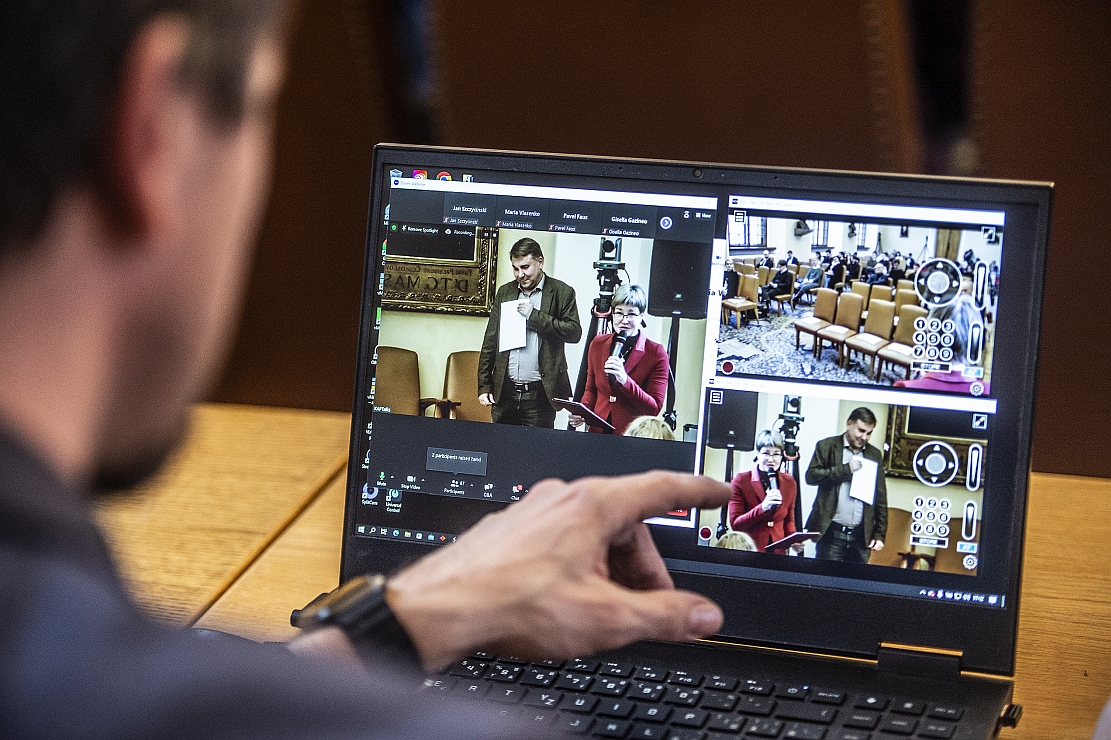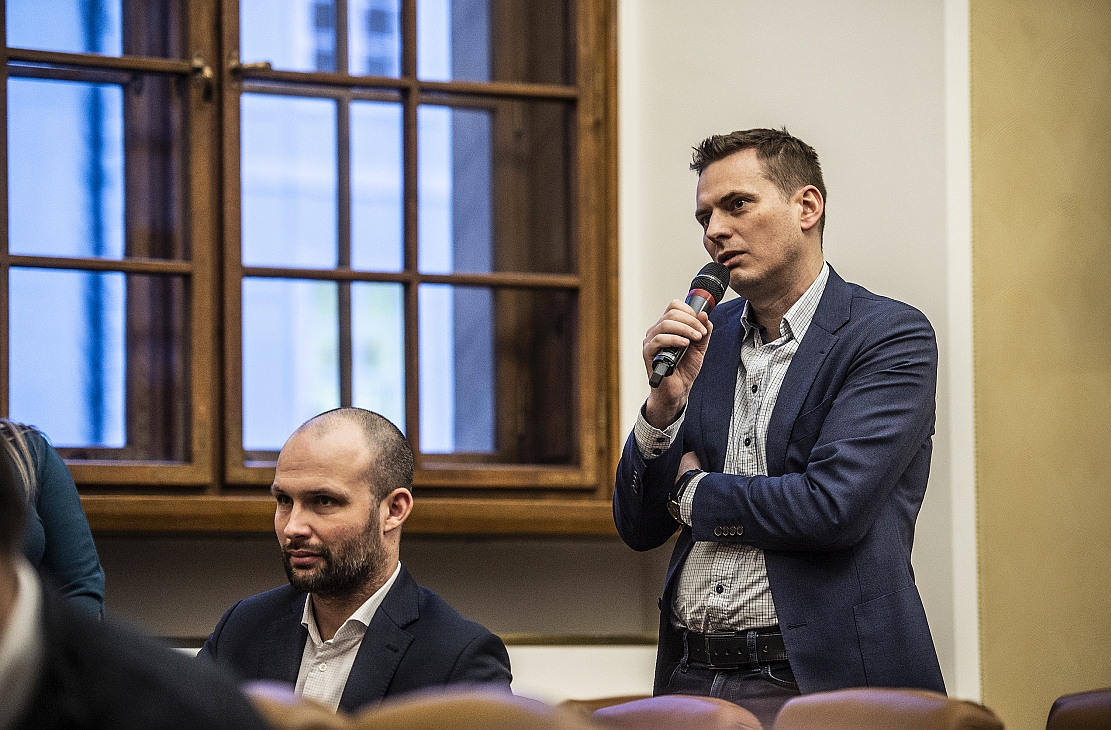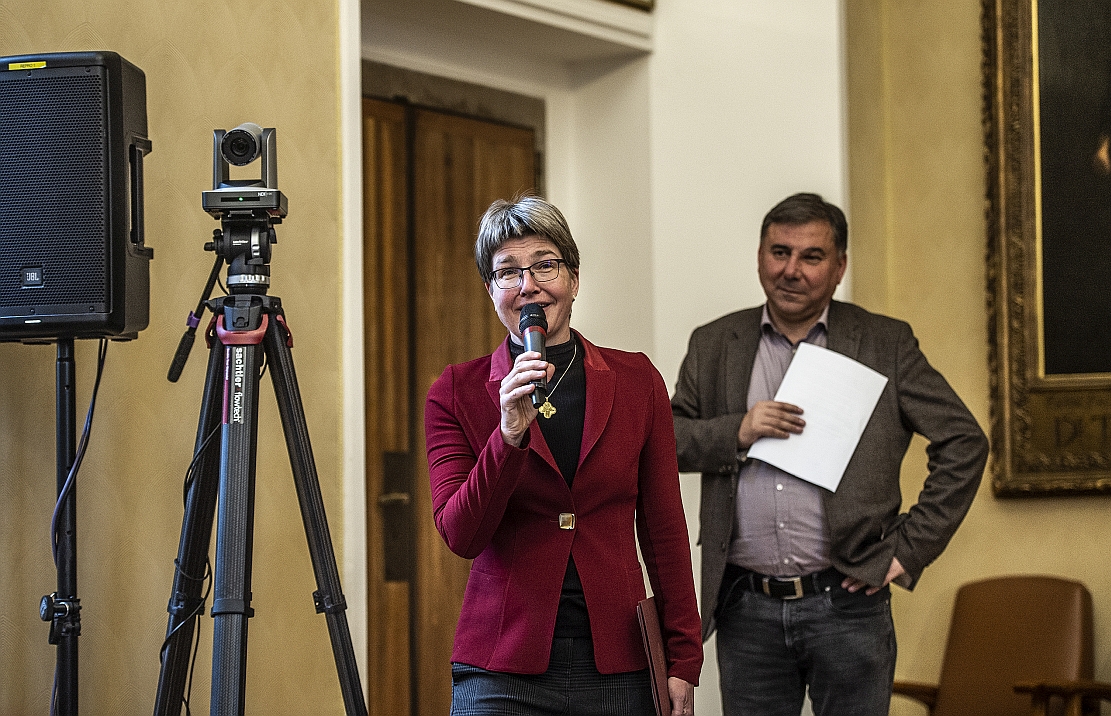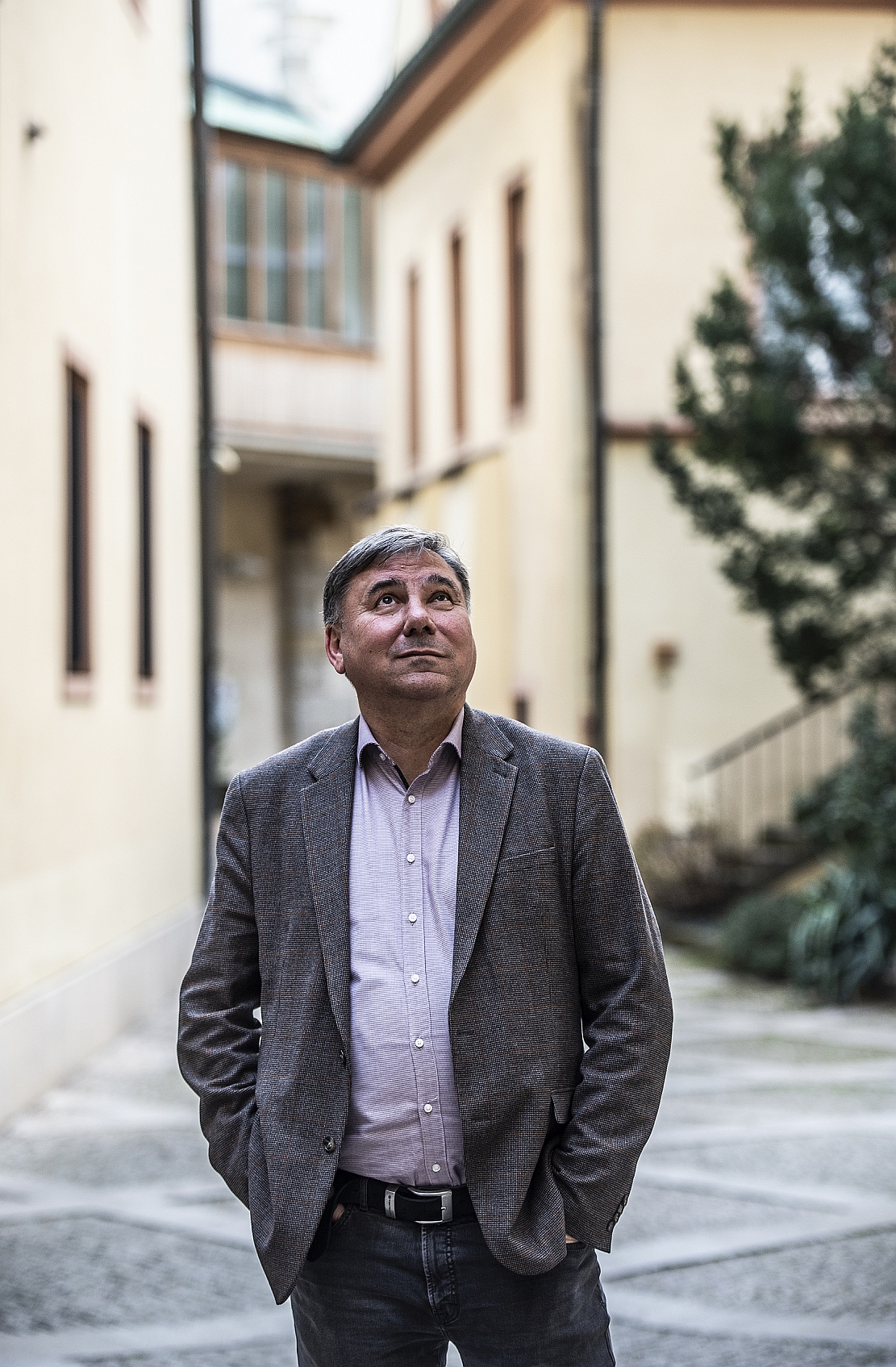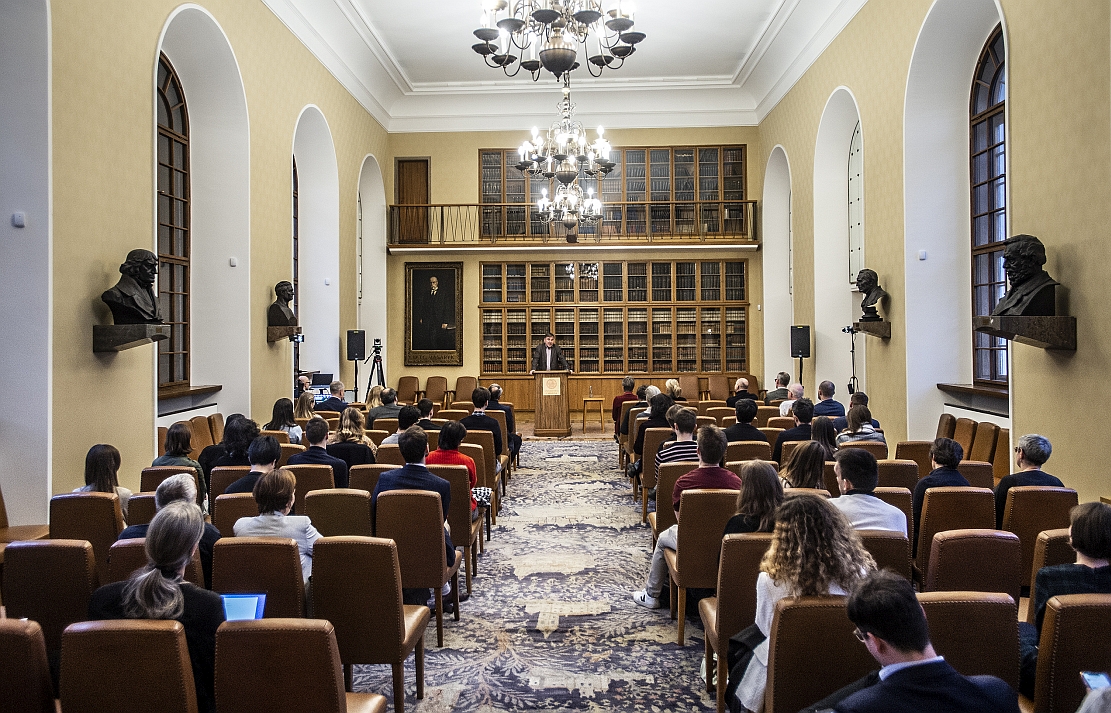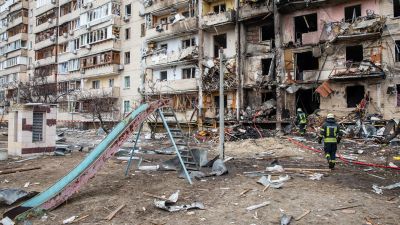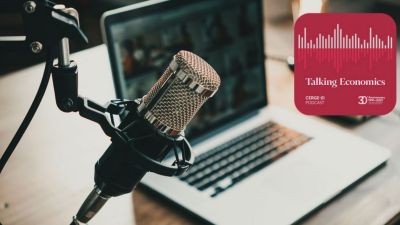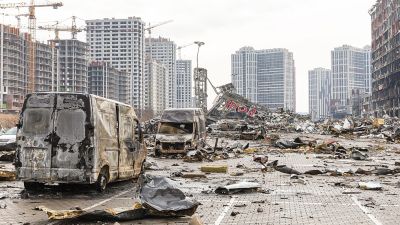On Tuesday, Charles University welcomed renowned political scientist Ivan Krastev, the chairman of the Centre for Liberal Strategies in Sofia, permanent fellow at the IWM (Institute of Human Sciences) in Vienna, to deliver a famous lecture at the Patriots’ Hall at the historic Carolinum building. Titled A Hall of Broken Mirrors, the talk reflected on the future of the international order in the face of Russian aggression in Ukraine.
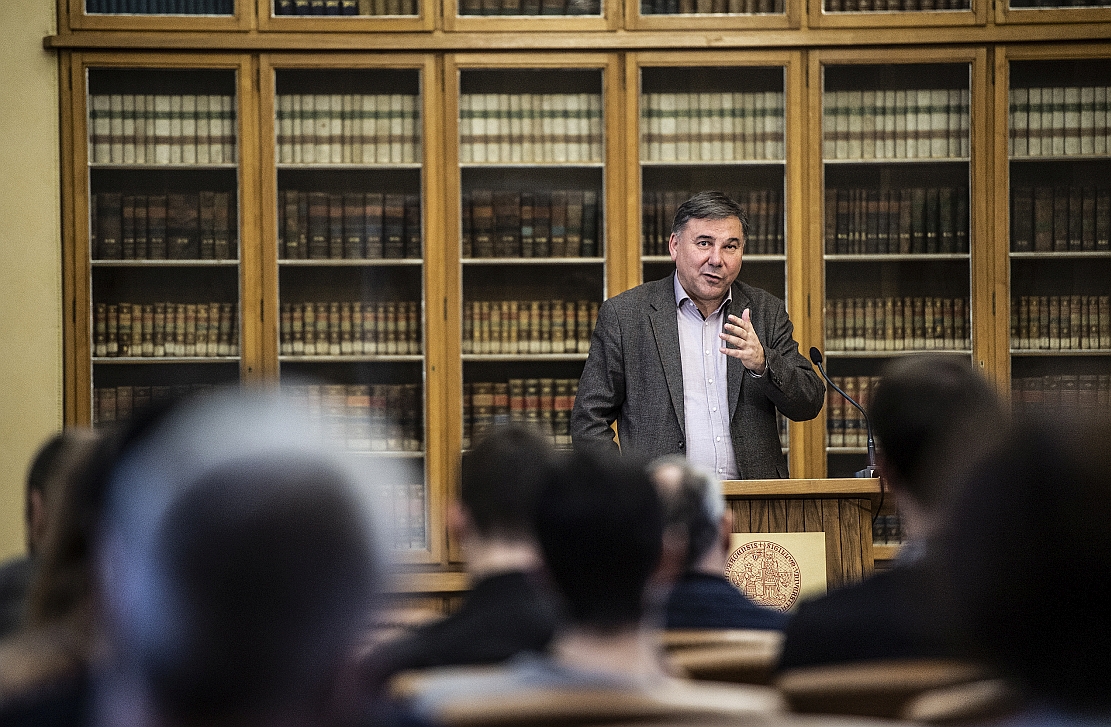
Political scientist Ivan Krastev gave a much-awaited lecture at the Carolinum at Charles University on Tuesday 7 March on the impact of Putin's war in Ukraine.
Co-organised by the Ministry of Foreign Affairs of the Czech Republic and Kapuscinski Development Lectures, the presentation took inspiration from an exhibition that opened in Sweden the day last year, February 24, that Russia launched its invasion of its soverign neighbour Ukraine. The exhibition, Krastev said, had invited visitors to bring mirrors of their own to the final hall, turning the focus on themselves.
Mirroring – and the question of who we are with regards to Russian President Putin’s war – was inspiration for the speaker, a war he argues is driven not by ideology of any kind but primarily by identity politics. Professor Krastev suggested that over a year into the war, we are in a brand new world: one in which international relationships are being redefined and the tenets of the European Union and liberal democracy challenged.
If international politics were a game (an analogy used in an earlier inception of his presentation at the University of Toronto), Mr Putin has flipped the table, effectively throwing out the rules-based international order that had guided or been the framework for Europe and Transatlantic ties since the Second World War. Those who thought closer economic cooperation, such as Nord Stream 1 and Nord Stream 2 would be buffers against Russia launching a war, were wrong, but Krastev pointed out the strategy had worked well until now.
“Europeans… believed that because of major economic relations this would not happen. The second assumption was that it would make war impossible. I know that for a particular part of Europe it is now popular to say how naïve the Germans were to go with Nord Stream 1 and Nord Stream 2 but believe me [both] were not commercial projects, they were security projects. This is what Germany was always about: ‘I am going to trade with you so intensively that fighting me is fighting yourself’. This was the European project, this was German universalisation as a way of making foreign policy for the last 70 years. They did it with France, Poland, the eastern European countries but it didn’t work this time. Even more, it turns out, our economic interdependence became our major vulnerability.”
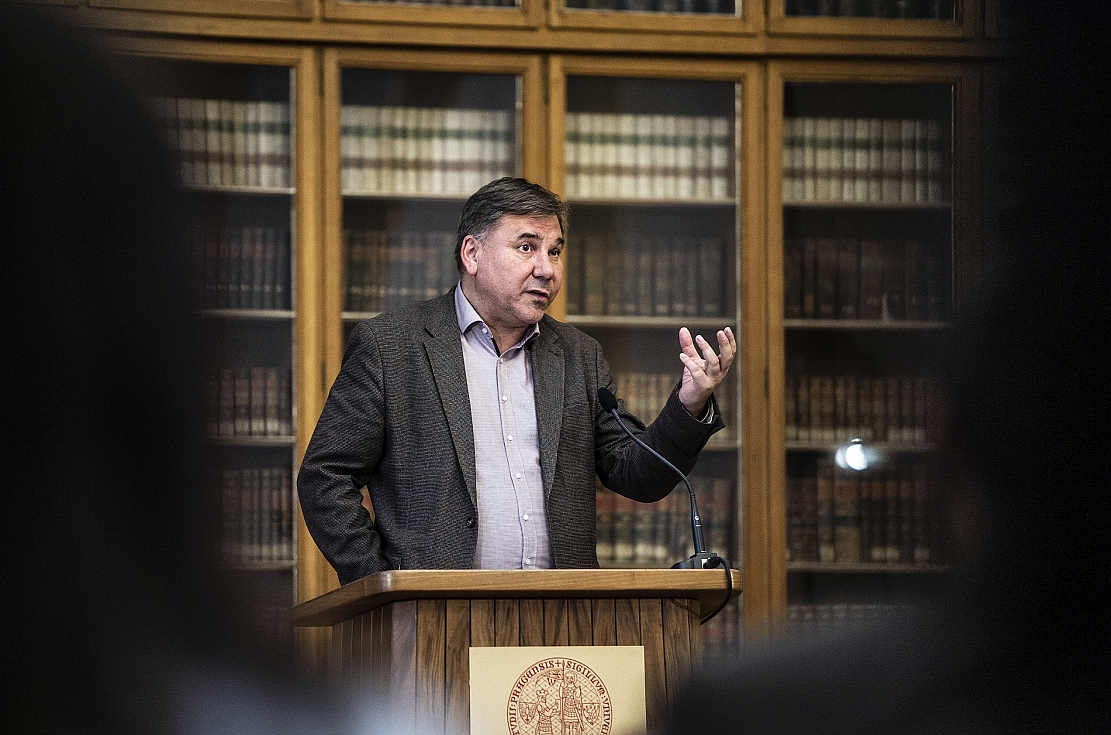
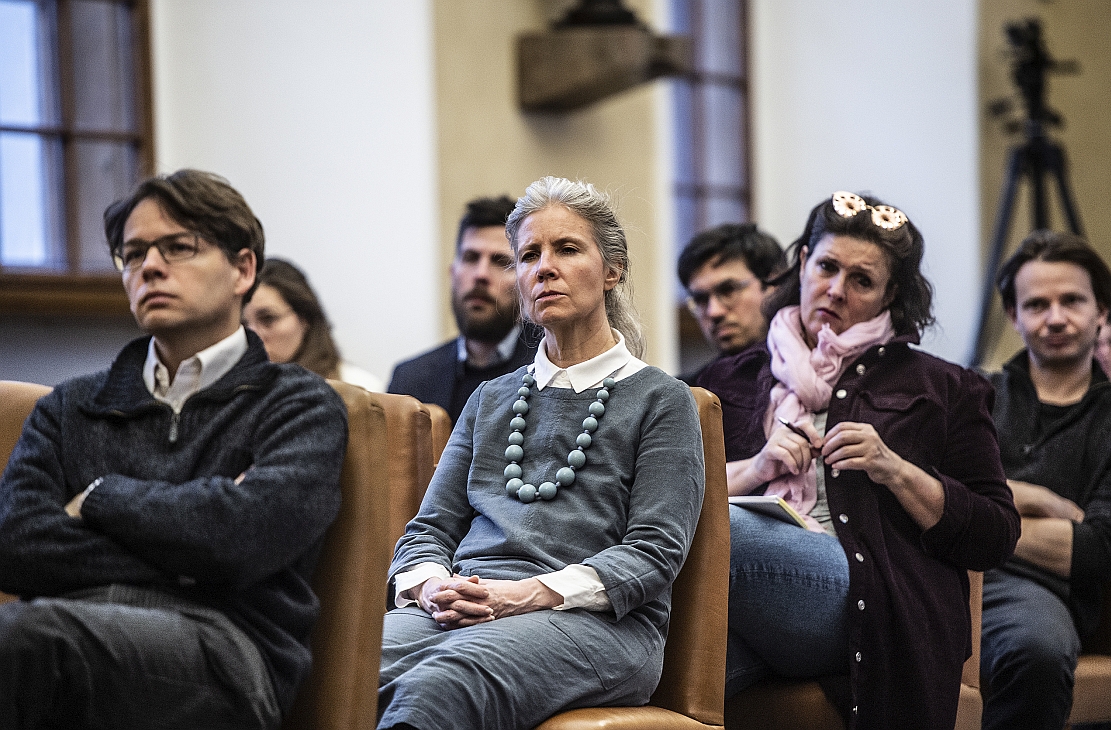
Attendees - students, diplomats, journalists - were able to see the lecture in person at the Patriots' Hall while even more watched the live stream.
According to Ivan Krastev, reasons for Putin’s war have everything to do with Putin not only trying to reframe Russia as an anti-imperialist and anticolonial champion (a paradox given the atrocities committed not only in Ukraine) but also with Russian identity and what Krastev called a Russian identity crisis. Hence the mirror metaphor, which resurfaced in a highlight: an exchange where Finnish President President Sauli Niinisto replied to Putin about why Finland had suddenly applied to join NATO. “Look in the mirror,” he told Russia’s president at the time. Finland and Russia, as we know, share a 1,340 kilometre common border.
Professor Krastev pointed out that it was for reasons of identity that Putin’s regime had insisted on the “special military operation” euphemism as opposed to calling it the war that it is. He added that given how Ukraine had surprised Russia with Zelenskyy embodying courage in the fight (I need ammunition, not a ride), the whole focus had also now shifted.
“In a certain way the Russian leadership lost the identity war because the idea for it was that there were [no longer] going to be Ukrainians. Not meaning that they would all be killed but that Ukrainians would realise that they were Russians! And in a certain way when President Putin spoke of special operations this is what he meant. This was going to be a short military operation with a change of the Ukrainian government and basically you were going to have a Ukrainian identity that was going to be redefined. How to define what it would mean to be Ukrainian was at the heart of the war.
“This is not the case anymore because in a strange way he defined Ukrainian identity in way that he didn’t want: they became anti-Russian in a way that you can see every day probably by talking to people on the street. But then the story becomes ‘what is the objective of the war?’. What does victory mean when you can longer have victory in the form of Ukrainians ‘realising’ it doesn’t make sense to be Ukrainian without being Russia-friendly?
“And here comes the story: paradoxically, after the [first part of the] special operation ended in September with the mass mobilisation on the Russian side: now this is not about the identity of Ukraine but about the identity of Russia. It is very much about the identity of Russia which is ‘threatened’ by the international order. In a certain way, the victim is no longer Ukraine, but the international order.”
The story of Russian identity is one that Krastev defines as far from simple, an empire which effectively never came to terms with its own imperial past as it was funnelled through the Bolsheviks’ ascent to power and the creation of the Soviet Union, a topic examined last year at Charles University’s Faculty of Arts also by Timothy Garton Ash. It’s unexpected collapse two years after the fall of the Berlin Wall, the later rise of Putin, as well as a realignment or rebalancing of nation states since ie. Global South and where they stand with regards to the war in Ukraine, all mean we are living in a world where many of the old rules no longer apply. A hall of broken mirrors.
The question remains: what kind of order will emerge and what eventual end to the war can Ukrainians, but also Europe, the US, and even the aggressor that launched the merciless conflict, hope for or expect?
If you were unable to attend or watch the live feed, you will be able to view the lecture by Professor Ivan Krastev here shortly. If you’d like to compare the lecture at Charles University on 7 March 2023, which Professor Krastev tailored to emphasise the legacy of the great Polish author and journalist Ryszard Kapuscinski* with an earlier version of the Hall of Broken Mirrors at the University of Toronto’s Munk School OF Global Affairs and Public Policy, you can find that here.
*Kapuscinski reported on almost 30 revolutions and coups and was the Polish press agency’s sole correspondent in Africa during decolonisation. His insight and understanding of the colonised and oppressed was a factor which came to the fore several times in the discussion in explaining why not all national players were now lining up along old Cold War fault lines. the argument being that they no longer apply. In his presentation on the same topics at Charles University, Timothy Garton Ash called it "payback".
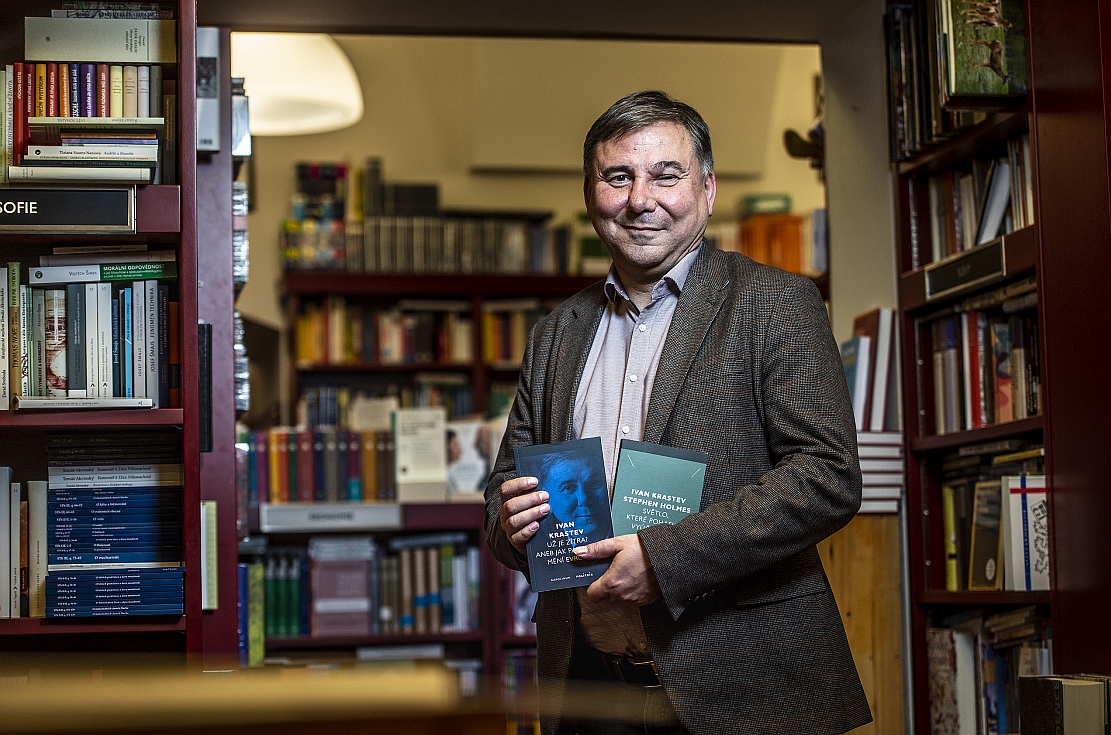
Ivan Krastev at CU's Karolinum Bookshop with Czech editions of his work including The Light that Failed co-written with Stephen Holmes.


